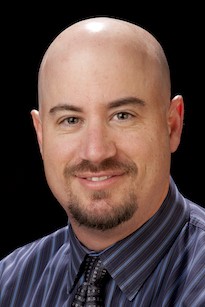
Cardiovascular disease (CVD) is the single most frequent cause of duty-related deaths among firefighters in the United States, occurring almost exclusively among those with underlying conditions. Firefighting is characterized by intense physical exertion, high-stress environments, exposure to hazardous substances and challenging schedules. The link between firefighting and heart disease is more prevalent than many may realize.
The link between firefighters and cardiovascular disease
Firefighters face numerous hazards that contribute to CVD, including smoke exposure, high-stress situations, noise, dehydration and physical exertion. While some risks can be somewhat predicted with preparation, others are more variable and unpredictable. Unreliable meal times often lead to unhealthy eating choices, while sleep interruptions and anticipation of emergency calls further increase CVD risk. Shift work has been shown to be detrimental to health and many firefighters also have second jobs with similar physical and psychological demands, compounding their risk.
Risk factors and prevention strategies
Risk factors play a crucial role in the development of CVD. Smoking, hypertension, obesity, high cholesterol, diabetes and poor preventive care are significant issues. Firefighters often struggle to maintain a balanced diet and regular exercise routines due to their demanding schedules, leading to higher rates of obesity, hypertension and diabetes.
Both the Centers for Disease Control and Prevention (CDC) and the International Association of Fire Fighters (IAFF) advocate for comprehensive cardiovascular health programs tailored for firefighters. The CDC recommends regular health screenings, including cardiovascular assessments, to identify and manage risk factors early. It also emphasizes lifestyle modifications, such as healthier eating habits and regular physical activity, to reduce cardiovascular risk.
The IAFF has initiated programs to address heart disease among firefighters, including the "Firefighter Fitness and Wellness" program, which aims to improve physical conditioning, reduce stress and promote healthier lifestyle choices through structured exercise routines and nutritional guidance. However, these initiatives can be challenging to implement without becoming a regular part of the overall system of care, supported by appropriate resources and oversight.
Conclusion
Firefighters are at an increased risk for CVD and sudden cardiac arrest due to the physical and psychological demands of their work. While modifying risk factors and enhancing preventive measures may seem straightforward, it’s crucial that the community provides comprehensive and accessible resources to support those who serve it. Just as there are physical and psychological requirements for a career in firefighting, the health care community should partner with firefighters to enhance their cardiovascular health throughout their careers, ultimately improving lives.
“America’s firefighters have long recognized the importance of strong physical and mental health to perform for our citizens as expected,” Jason Shivers, division chief of technical services with Forsyth County Fire Department, said.
“In Forsyth County, we take physical fitness and cardiac health very seriously," Shivers added. "Gyms in nearly every firehouse, daily fitness regimens and annual NFPA (National Fire Protection Association) qualified physicals all help condition our firefighters to be the top athletic performers required by the job.
"By closely monitoring cardiac health, we can quickly identify issues and give firefighters the best chance for recovery, helping them return to work and ensuring a long, healthy retirement.”
Learn more from Northside Hospital Heart Institute.

